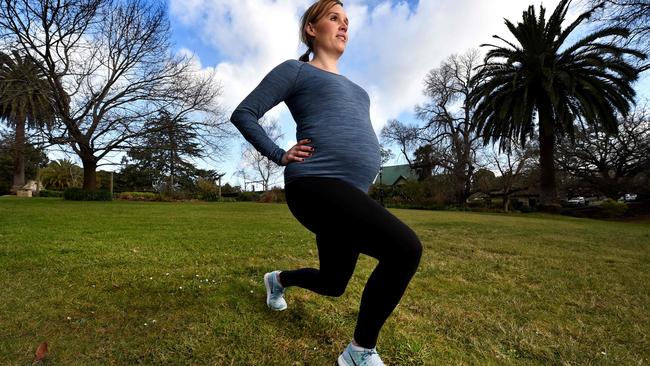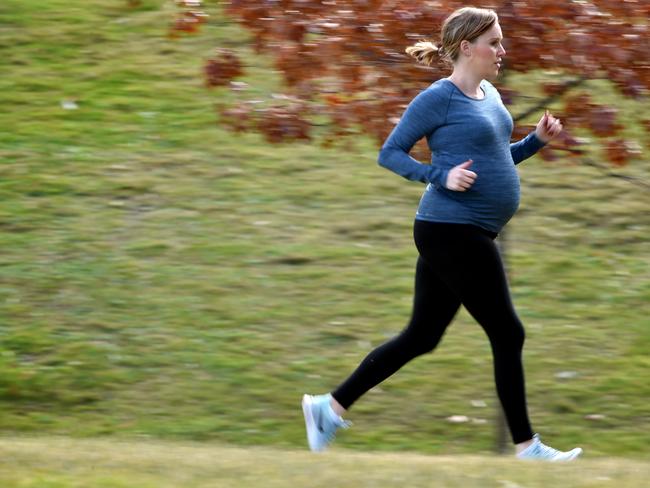Mums-to-be need to keep exercising, study finds
THE notion of eating for two during pregnancy should be scrapped and replaced with stronger guidelines recommending exercise and a sensible diet, a new study has found.

News
Don't miss out on the headlines from News . Followed categories will be added to My News.
THE notion of eating for two during pregnancy should be scrapped and replaced with stronger guidelines recommending exercise and a sensible diet for the best chance of cutting complications.
An international study has found healthy eating and continuing or even starting exercise can reduce the risk of gestational diabetes by a quarter and the risk of caesarean section deliveries by 10 per cent.
Other benefits for both mother and child have also been found by maintaining a healthy lifestyle during pregnancy, regardless of a woman’s age or whether she was obese or normal weight when becoming pregnant.
The study of more than 12,500 women from 16 countries — including thousands from Australia overseen by researchers from Melbourne’s Monash University — has offered the strongest proof yet that moderate exercise should continue while pregnant.

Monash’s Professor Helena Teede said there are clear benefits for constant moderate intensity activities, such as aerobic classes, stationary cycling or resistance training for muscle groups in pregnancy.
“What was shown clearly in this evidence is that exercise is not detrimental in pregnancy,” Prof Teede said.
“The evidence is that Australian women drop their physical activity dramatically during pregnancy, so many are already inactive before pregnancy, and in pregnancy we drop that down considerably.
“This study that physical activity has a very significant benefit in pregnancy and is not causing harm — so this is righting those myths.”
The study, published in the British Medical Journal, finds maintaining a healthy diet of restricted sugary drinks, low-fat dairy products and increased fruits and vegetables could cut dangerous complications. With one in six Australian pregnancies impacted by gestational diabetes, Prof Teede said only a slight increase in food intake should occur — though no dieting.
“This is about women understanding what their healthy weight targets are,” she said.
As an exercise physiologist, Cheryce Harrison knows the importance of physical activity, even if it requires extra effort to undertake while 32 weeks pregnant and caring for a three-year-old.
“It is difficult the second time around while running around after a toddler to fit in structured physical activity, so working in activity into a normal daily routine by walking instead of driving is more achievable,” she said.


